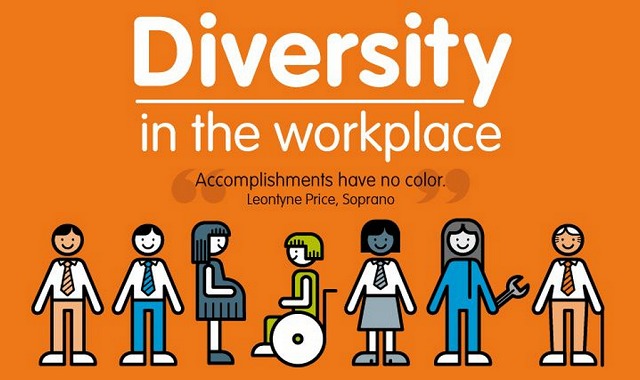
Diversity in a company has been proven to have many benefits, including increased profitability, market share, and global competitiveness. However many new companies, particularly in the tech industry, face challenges in hiring a diverse range of people. In this post, Stefan Palios shares how companies can go about increasing the diversity in their workforce through taking a different perspective in recruiting and hiring people.
Stefan Palios is the Founder of Ziversity and a diversity and inclusion consultant. He has a number of years of experience in the HR/diversity recruiting space, starting with his research at Yale University and continuing through numerous non-profit positions. Stefan is also a graduate of the Toronto Founder Institute.
The article "Dear HR: Diversity is difficult" originally appeared on Ziversity's blog. It has been republished below with permission.
Finding Diversity
Simply put, the most diverse candidates are not going to be found in traditional recruiting channels. They aren't present at (or, sometimes, invited to) the most prestigious career fairs, and it can be difficult for companies to dig and wade through the complex web of candidates to find the candidates that merit the positions for which they are hiring.
Companies should reach out more into diverse communities with specific recruiting and branding efforts.
There are companies that can help do this (my company Ziversity was founded to help companies meet diverse candidates). Once a company has a qualified hiring pool of people that more accurately represents the diversity in the ecosystem they operate in, their methods of interviewing and picking candidates should usually find the "best person for the job, regardless of identity".
However...
Diverse People = Diverse Experiences
The interview process is not always set up to understand what diversity actually means. In many instances, coming from a diverse identity set means a completely different set of experiences and thus candidates may not look qualified even when they are.
Take an LGBTQ activist, for example. The resume of an activist is likely full of organizing, conference planning, fundraising, and even protesting. Let's say this activist is looking for a day job as a machine operations manager at a steel mill or as a consultant in a global professional services firm. If recruiters at the steel mill read this person's resume, they might assume that the candidate would be incapable of managing a rigorous production schedule since the nonprofit world is often assumed to be more lax than the for-profit world. If a recruiter at the consulting firm saw this resume, they might worry that the candidate does not have client relationship management skills because activism and organizing is often understood as protesting, which is a client-unfriendly way to act.

Decoding Diverse Experiences in 2016
When interviewing candidates - particularly those with diverse experiences and backgrounds - the challenge is understanding how those experiences fit into the role at hand. The candidate has a lot of responsibility to frame their experiences, but HR is able to help the learning and decoding process, which in turn makes your company more inclusive:
Look for fundamental skills
Make sure you have a deep understanding of the fundamental skills associated with your job and then look for those in candidates. Both jobs from above - consultant and machine ops manager - require "interpersonal skills", but the fundamental skill might be more like "cool under pressure, even with a lot of people yelling at you/counting on you". An LGBTQ activist, who has likely had to deal with fervent anti-LGBTQ sentiment yet still remain calm and collected, might be a good fit for this role.
Don't assume
It can be easy to read a resume, see it full of skills and experiences that are not directly related to the job at hand, and assume the candidate won't fit/can't do the job. This is a huge mistake, and it will cost you not only in terms of diversity in your organization, but also fresh ideas and perspectives from all employees. Instead, in the resume screening process try to identify what fundamental skills the person is displaying. In the interview process ask digging questions and decode their experiences to see if they really do fit with the fundamental skill sets your job posting requires.
Recruiting, hiring, and keeping diversity can be a tough gig.
Candidates are hard to find, their experiences difficult to understand, and it is a big challenge to change organizational culture to embrace dissenting and different viewpoints. As part of your individual commitment to inclusion in 2016, make the changes where you can in your role to reach out into diverse communities and change the way you interview to make sense of seemingly random experiences. Don't know how to do that, or worried you are not doing it well enough yet? Just ask.
For more insight from Stefan Palios, check out the Ziversity blog or follow Stefan on Twitter @StefanPalios.
Click here to sign up for the Founder Institute's newsletter.



